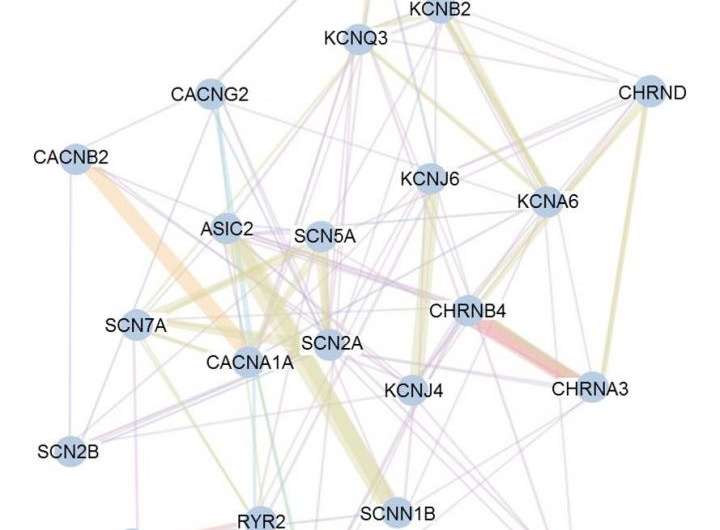Researchers find pathways that uncover insight into development of lung cancer

Lung cancer is the leading cause of preventable cancer death. A disease of complex origin, lung cancer is usually considered to result from effects of smoking and from multiple genetic variants. One of these genetic components, a chromosome named 15q25.1, has been previously identified as a leading influencer of susceptibility to lung cancer, smoking behavior, and nicotine addiction. However, no previous study has investigated the mechanisms of this lead agent, or documented the susceptibility pathways that allow this chromosome to modify development of disease.
A research team led by Xuemie Ji, MD, Ph.D., Research Associate in Department of Biomedical Data Science at Dartmouth's Geisel School of Medicine, helped solve this central problem. The team identified two main pathways involving the mechanism by which the chromosome 15q25.1 locus influences lung cancer risk. The first pathway is an interaction pathway in the nervous system that is implicated in nicotine dependence. The other pathway can control key components in many biological processes, such as transport of nutrients and ions, and the human immune system.
The results have been newly published in Nature Communications. "Our findings in pathways uncover insights into the mechanism of lung cancer etiology and development, which will potentially shorten the interval between increasing biological knowledge and translation to patient care," says Ji. "Blocking genes downstream or in parallel pathways might provide a strategy to treat such cancer."
The study used two independent cohorts of 42,901 individuals with a genome-wide set of genetic variants, as well as an expression dataset with lung tissue from 409 lung cancer patients to validate findings. Two different methods were used to analyze data, and confirm that the findings are reliable and can be repeated with different methods. "To our knowledge, this is the first study to explore the pathogenic pathways related to the mechanisms of chromosome 15q25.1 and the first to use a novel analysis approach to analyze data and to validate the findings," says Ji. "The ability to block the damaging genetic variants downstream or in parallel pathways might improve lung cancer prognosis and survival, and therefore provide alternative strategies to treat such cancer."
The team is working to identify more mechanisms contributing to the increased risk of lung cancer. They aim to provide more explanation for the large unexplainable division of lung cancer occurrences.
More information: Xuemei Ji et al, Identification of susceptibility pathways for the role of chromosome 15q25.1 in modifying lung cancer risk, Nature Communications (2018). DOI: 10.1038/s41467-018-05074-y

















